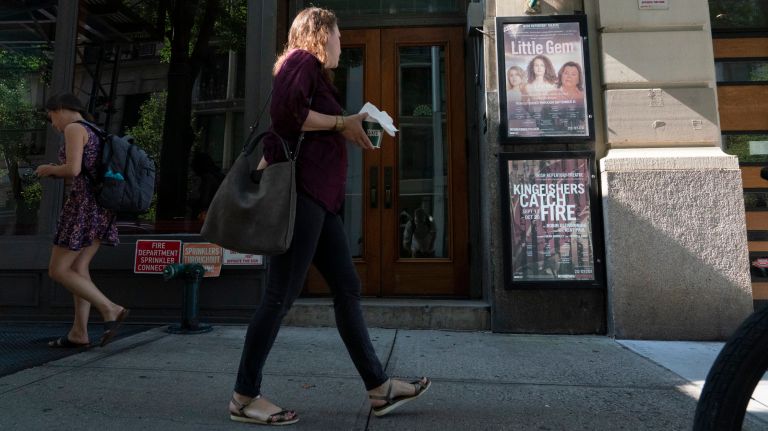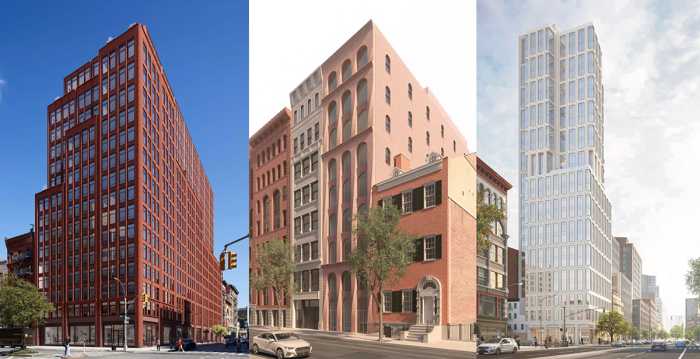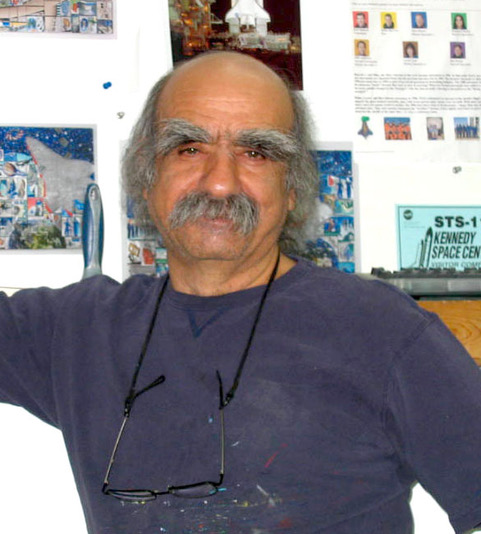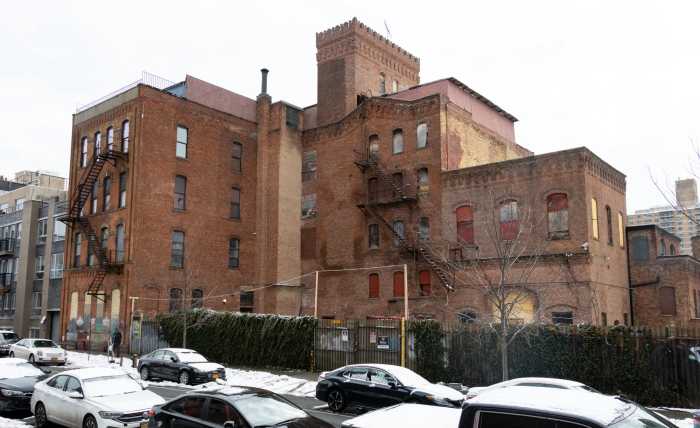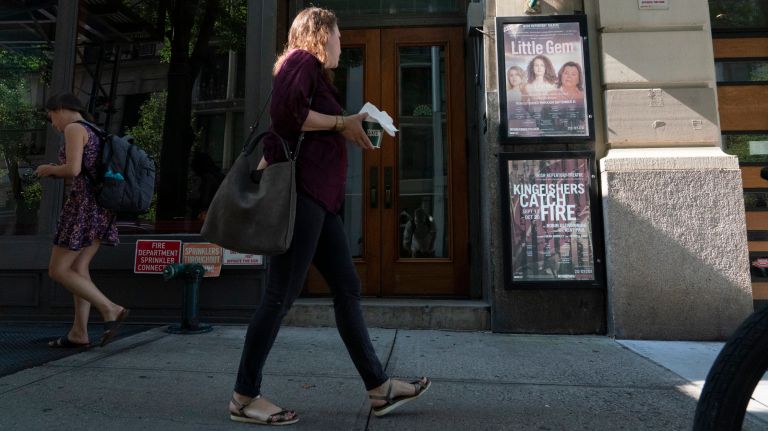
Prohibitive rent increases have pushed theater companies to employ new strategies to ensure the show does, indeed, go on.
A growing number of companies are drawing on public and private funding, along with guidance from their peers, to negotiate long-term leases or purchase their own facilities. In many cases, such strategies have proved pivotal to continuing to perform amid an era of rising market rents.
The Flea Theater’s monthly rent on White Street in TriBeCa increased more than eightfold between 1996 and 2016.
But by 2009, the off-off Broadway organization launched a $21 million capital campaign, which allowed it to acquire and move into a space of its own in fall 2017, according to Carol Ostrow, its producing director.
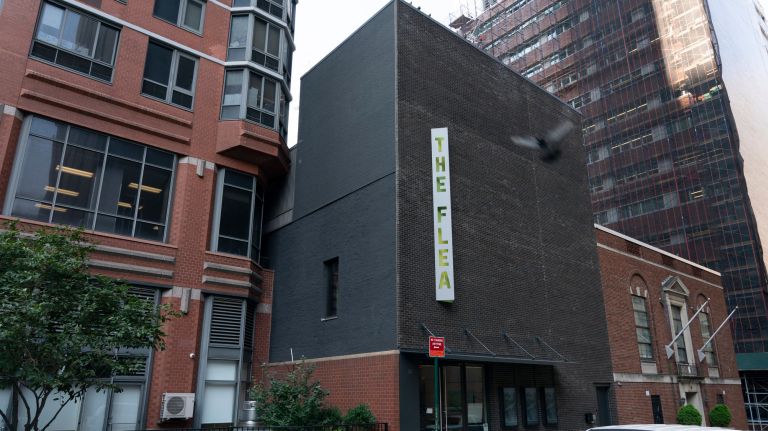
This $5.7 million, three-theater performing arts complex at 20 Thomas St. has helped The Flea firm up its identity, Ostrow said.
"We have a home, which makes creating art that much easier," she said. "When we decided to stay put in our neighborhood, the city helped us with acquisition and construction, and we were eligible for federal and state funds to help businesses who stayed after 9/11.”
On Governors Island, the Lower Manhattan Cultural Council (LMCC) plans to open an arts center later this month inside Building 110, a 40,000 square-foot former munitions warehouse that underwent a $6 million renovation funded through public and private sources. The center will include performance space, galleries, artist studios and a cafe.
LMCC’s 10-year lease, which comes with the option to extend, is a game-changer, according to Diego Segalini, the nonprofit’s executive director of finance and administration.
"That kind of strategic planning gives us the time to create partnerships and raise funds," Segalini said.
Still, more than 70 performance venues in the city have shut down or been repurposed over the past decade, according to IndieSpace, which focuses on providing permanent homes for the independent theater community.
Arts organizations are especially vulnerable because lease renegotiations can put them in competition with high-end retailers and restaurants, according to Randi Berry, executive director of IndieSpace.
This is no longer the ’70s and ’80s, when “artists could create a place with little or no resources … The neighborhood became more desirable, then they’d get priced out of it," Berry said.
She cited Galapagos Art Space, which left Brooklyn after realizing it could own its own space in Detroit, as an extreme example.
Even in more stable situations, theater companies find themselves shuttling from building to building, relying on separate locations for administrative and rehearsal space or producing at different venues year after year, according to Berry.
IndieSpace seeks to help them get long-term leases or own facilities, which Berry said projects an image of sustainability to subscribers and those reviewing grant applications.
A handful of theater companies that have pursued such strategies are currently clustered along East 4th Street, between Bowery and Second Avenue, Berry said, including New York Theatre Workshop and La MaMa, which purchased its 66 E. 4th St. building in 2005 for a dollar. The deal was part of an arrangement with the city that came with deed restrictions requiring that seven buildings and two vacant lots be nonprofit cultural buildings in perpetuity, according to the website of Downtown Arts. Today, that block is home to more than a dozen arts organizations and is Manhattan’s only officially recognized cultural district.
In 2017, the firm helped The Tank, a nonprofit arts presenter, find space with a midtown building owner who has a soft spot for the arts, Berry said. She said such owners might offer more favorable lease terms.
"They could be generous on the base year, which would impact real estate tax payments," Berry said.
Meghan Finn, The Tank’s artistic director, said their arrangement at 312 W. 36th St. is “a 10-year lease with a five-year option, and we’ll definitely take that option.” For $18,000 a month, the company has access to a 56-seat black box space, a 98-seat proscenium theater and an office area.
Throughout The Tank’s 16-year history, Finn said the organization has had stints on Church Street and West 42 Street’s Theatre Row — as well as several little spaces elsewhere in Manhattan.
The Tank’s current address also houses the Chain Theater, Workshop Theater and The Barrow Group, which has Finn interested in working with the city’s Economic Development Corporation to designate the space an art business incubator.
Stability, for the Irish Repertory Theatre, came in the form of a mortgage, according to its co-founder and producing director, Ciarán O’Reilly.
"There’s no way we would have survived the rental hikes between 2000 and now," O’Reilly said. "It means the difference between being here and not being here."
Before arriving in Chelsea in 1994, O’Reilly said the theater company was nomadic.
"It was so exhausting and limiting," he said. "We were going to quit if we didn’t get a place of our own. So when we found this place, we did everything we could to keep it.”
But then with six years left on its 12-year lease, the theater learned the prewar Stanwick Building was sold in 2000 to a developer interested in building residential condos and buying out The Irish Repertory Theatre’s lease.
O’Reilly said his team started a capital campaign to purchase its space, which received city and state funding along with money from private donors, including Time Equities founder Francis J. Greenburger.
The government assistance came with a restrictive covenant clause that requires the space to “continue as an arts organization for at least 30 years," according to O’Reilly. "It’s not as if we could take the money, and sell it to McDonald’s.”
The Irish Repertory Theatre returned to 132 W. 22nd St. in mid-2016, after temporarily locating in Union Square’s DR2 Theatre while the 22nd Street location underwent a $6 million renovation.
The Irish Rep has paid all but $800,000 of its $1.8 million mortgage and acclimated to its headquarters’ two theaters, office spaces and gallery and rehearsal areas, according to O’Reilly.



